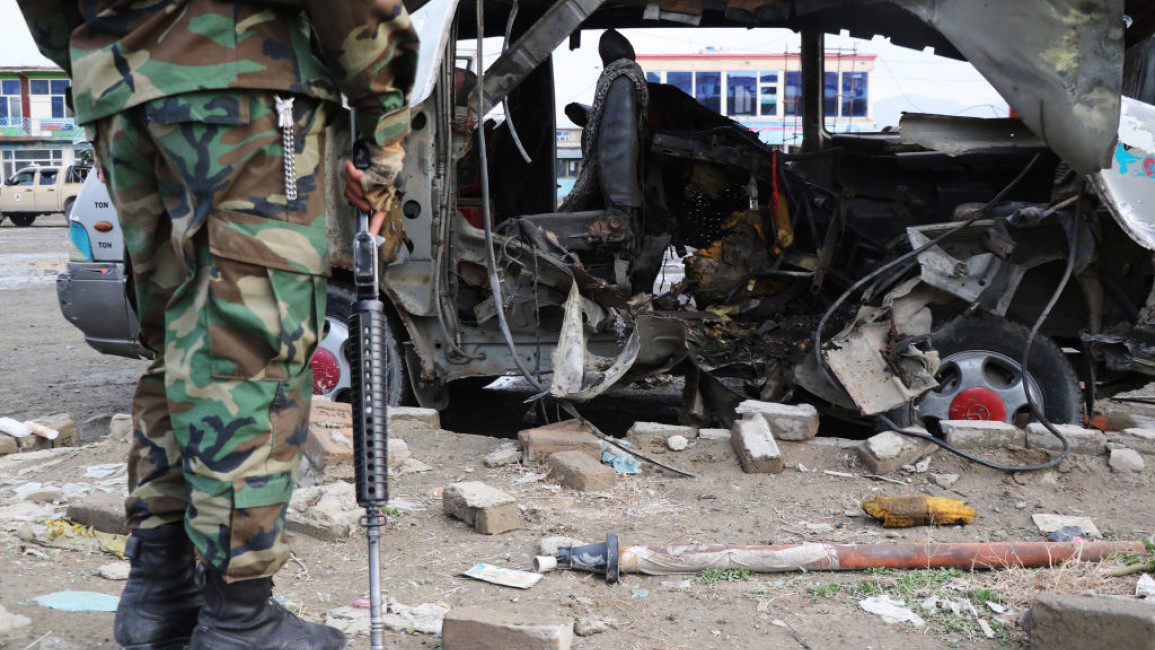Afghanistan: Nine killed, 13 wounded in two minibus bomb blasts in Mazar-i-Sharif
Two bomb blasts aboard separate minibuses killed at least nine people on Thursday in Mazar-i-Sharif, police said, a week after a deadly explosion rocked a Shia mosque in the northern Afghan city.
The number of violent public attacks has fallen since Taliban Islamists seized control of Afghanistan last August after 20 years out of power, but the Sunni extremist Islamic State group has continued to target Shia Muslims, who they view as heretics.
Thursday's blasts occurred within minutes of each other in different districts of Mazar-i-Sharif as commuters were heading home to break their dawn to dusk Ramadan fast, Balkh provincial police spokesman Asif Waziri told AFP.
"The targets appear to be Shiite passengers," he said, adding 13 people were wounded in the blasts.
"The enemies of Afghanistan are creating tension and division among our people."
No group has so far claimed the bombings.
The blasts came just days after a deadly bomb attack at a Shia mosque in Mazar-i-Sharif killed at least 12 worshippers and wounded scores more.
A separate bomb attack at another mosque in the northern city of Kunduz last week targeted the minority Sufi community, who follow a mystical path within Islam, and killed at least 36 people at Friday prayers.
In another attack, also targeting Shia Muslims, two bombs detonated at a school in Kabul, killing six students.
The jihadist IS group claimed the mosque attack in Mazar-i-Sharif, but no group has so far taken responsibility for the bombing in Kunduz.
Shia Afghans, who are mostly from the Hazara ethnic minority community, make up between 10 and 20 percent of Afghanistan's population of 38 million.
After the Taliban's return last August, four young Afghans decided to leave their cities and seek asylum in Europe. But their journey took a perilous turn when they were sent to Syria instead. @alibomaye reports ⬇ https://t.co/b3ubWplXR9
— The New Arab (@The_NewArab) April 25, 2022
The regional branch of IS in Sunni-majority Afghanistan has repeatedly targeted Shia Muslims and other minorities, such as Sufis.
While the Taliban are also Sunni extremists, the organisation is a bitter rival of fellow Islamists IS.
The biggest ideological difference is that the Taliban sought only an Afghanistan free of foreign forces, whereas IS wants an Islamic caliphate stretching from Turkey to Pakistan and beyond.
Taliban officials insist their forces have defeated IS, but analysts say the jihadist group is a key security challenge.



